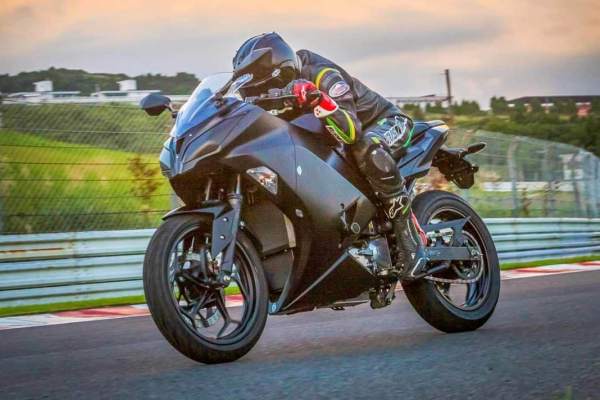
The ‘Big Four’ Japanese motorcycle firms - Honda, Yamaha, Kawasaki and Suzuki - have outlined its plans to ramp up the development of electric motorcycle development with the launch of a testing scheme to take place in Osaka.
Though fierce industry rivals, the quartet revealed they will be joining forces last year in an effort to speed plans to bring electric models to market quicker and more efficiently, namely the use of swappable battery technology.
While electric motoring has taken strides in the four-wheel industry, zero exhaust-emissions motorcycles are still relatively niche with only a handful of models on sale and several manufacturers still some years away from launching their first.
As such, Honda, Yamaha, Kawasaki and Suzuki last year established a consortium to develop swappable batteries for electric motorcycles in an effort to standardise the technology and ensure batteries work across different brands - in other words, the equivalent of having your Android and iPhone charged by the same cable…
After a few months of silence, the quartet have announced it is launching the e-Yan Osaka trial, which gives students and staff at Osaka University the opportunity to ride electric motorcycles and use battery-swap stations installed on campus.
“As a result of repeated collaboration studies among four domestic motorcycle companies we were able to collaborate with e-Yan OSAKA to verify the common specifications of replaceable batteries,” Honda’s Noriaki Abe explains
“We are aware that there are still issues to be solved in the spread of electric motorcycles, and we will continue to work on improving the usage environment of our customers in areas where each company can cooperate.”
Though swappable battery technology is likely to have most relevance for lower displacement motorcycles and scooters, as well as be aimed at the growing number of ride-share urban services springing up around cities, the collaboration is also likely to speed up development of electric technology, as well as drive costs down.
It’s unclear whether this project will pave the way for technology-sharing to be used between bigger models, but with all four somewhat behind rivals as KTM, BMW and Harley-Davidson with regards to developing electric machinery, it’s likely to be the first step towards this at least.

